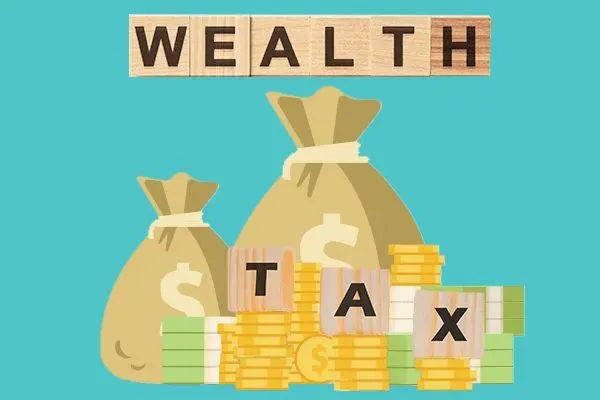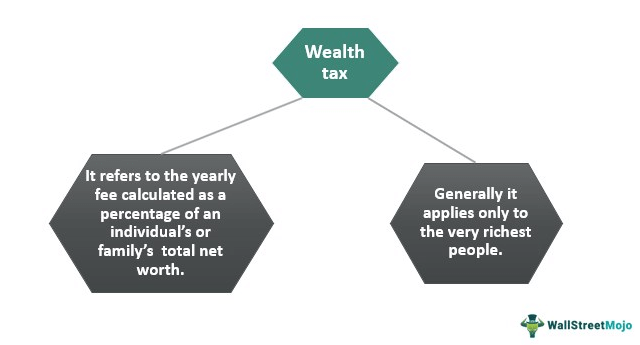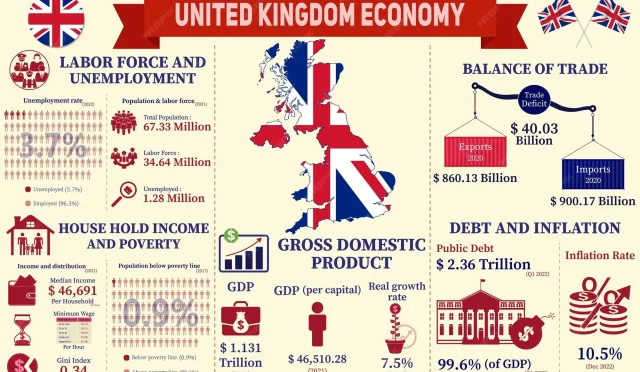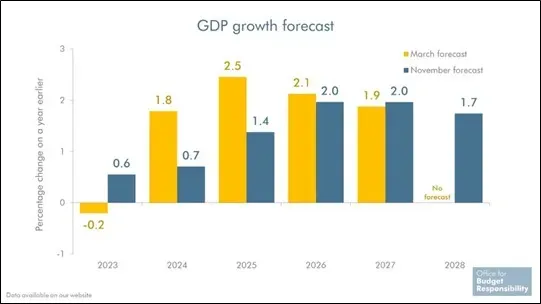Wealth Tax: Addressing Global Inequality and Billionaires’ Riches
Wealth tax is emerging as a vital tool in the fight against global inequality, as recent figures reveal a stark contrast between the soaring fortunes of billionaires and the plights of average citizens. According to Oxfam, the collective wealth of just 3,000 billionaires has rocketed by $6.5 trillion in real terms over the last decade, highlighting the growing divide in our economic landscape. This disparity has sparked renewed calls for wealth tax implementation, which proponents argue could effectively bolster public services funding and address pressing social issues. Governments are increasingly under pressure to tackle extreme wealth accumulation and its consequences, especially amid rising public support for fair taxation. By addressing the tax loopholes that allow billionaires to shield their fortunes in tax havens, we can initiate a shift towards a more equitable distribution of resources and opportunities.
A levy on personal fortunes, often referred to as a wealth tax, has garnered significant attention as a means to mitigate disparities in wealth concentration. The growing urgency for systemic change has led to discussions around alternative taxation frameworks aimed at high-net-worth individuals. Advocates argue that such taxes can provide critical funding for public services, thereby enhancing support for communities in need. The increasing clamor for addressing issues tied to extreme wealth reflects a broader movement seeking to challenge the status quo and promote a fairer economic model. As countries explore new avenues for ensuring that the ultra-wealthy contribute their fair share, the concept of taxing inherited wealth and large assets becomes ever more relevant.
The Rise of Billionaires and Global Inequality
Over the past three decades, the number of billionaires has skyrocketed, revealing a stark contrast between the affluent elite and the general population. According to Oxfam, the world’s 3,000 billionaires have increased their wealth significantly, by $6.5 trillion, which accounts for an astounding 14.6% of the global economy. This staggering growth in wealth underscores the widening gap in global inequality, where the richest 1% have accumulated at least $33.9 trillion, likening their assets to enough resources to eradicate annual global poverty multiple times over. The concentration of extreme wealth in the hands of a few has prompted renewed calls for governmental action to address these disparities and ensure equitable economic opportunities for all citizens.
In the UK alone, the last few decades have seen a dramatic rise in the number of billionaires, growing from just 15 in 1990 to a whopping 165 by 2024, as reported by the Equality Trust. Their average wealth has surged by over 1,000%, highlighting not just a trend but a systemic issue of income inequality where average workers bear a heavier tax burden. The growing proportion of wealth held by billionaires, coupled with their disproportionately low effective tax rates—around 0.3% compared to the higher rates paid by average workers—fuels frustration over the fairness of the tax system and calls for reforms to promote economic justice.
Billionaire wealth accumulation coincides with significant global inequalities, as the wealth of the super-rich grows at a rate much faster than that of the general populace. Oxfam’s analysis suggests that the wealthiest segments of society are not just barriers to social equity but also challenge the sustainability of public services worldwide. Countries struggling under the burden of poverty and social unrest are now facing additional pressure to find solutions that combat systemic inequality. Moreover, the stark realities of global inequality have made international discourse on wealth distribution even more critical, as nations grapple with the implications of having an obscenely wealthy minority amidst widespread economic hardship.
Implementing a Wealth Tax for Fairer Distribution
In light of the current disparities caused by extreme wealth accumulation, the advocacy for implementing a wealth tax has gained significant traction. Touted as a solution to address global inequality, a wealth tax could be levied on the ultra-wealthy, ensuring that they contribute equitably to public services funding that benefits society at large. Advocates argue that governments, including the UK, must take decisive action to reclaim the lost public revenue through fair taxation strategies. This initiative comes at a time when billions of dollars are stashed away in tax havens, preventing fair contributions to social welfare programs essential for maintaining a functional economy. As countries like Spain, Brazil, Germany, and South Africa lead the way by proposing a minimum 2% tax on the ultra-wealthy, the message is clear: the super-rich must pay their fair share to address societal needs and combat the escalating global inequality crisis.
Rachel Noble from Oxfam emphasizes the urgent need for the government to recommit to public investment and fair taxation policies to effectively tackle issues such as inequality and poverty. Without substantial reforms, citizens may continue to feel the day-to-day effects of widening wealth gaps while billionaires enjoy their growing fortunes. Governments are urged to collaborate on international efforts to counteract extreme wealth and explore a realistic framework for implementing wealth tax regulations. The potential revenue generated from such taxes is significant; studies suggest it could raise $250 billion globally, redirecting resources toward critical public services and reinforcing the social safety net.
However, the conversation around a wealth tax is not without opposition. Critics caution that such taxation policies may lead to capital flight, where the wealthy relocate their assets or income to countries with more favorable tax regimes—commonly referred to as tax havens. This phenomenon complicates the implementation of a wealth tax and poses challenges for governments aiming to effectively collect revenue from the ultra-rich. Moreover, there is an ongoing discussion about how to structure these taxes in a way that minimizes loopholes and ensures compliance, especially for those residing in places like Monaco or Jersey while earning income in wealthier nations. The complexity of these issues calls for collaborative international action and offers an opportunity for nations to set unified standards that deter tax evasion and promote wealth redistribution.
Public Support for Taxation Reform
Public sentiment toward taxation reform, particularly regarding wealthy individuals and corporations exploiting tax loopholes, is overwhelmingly supportive. A survey conducted by Oxfam revealed that an impressive 86% of respondents favored the idea of funding public services through measures designed to close the legal loopholes that allow the affluent to escape fair taxation. This enthusiasm for reform reflects an increasing awareness among the general population about the disparities in wealth distribution and the necessity for government intervention to ensure that those most capable of contributing to society do so adequately.
This widespread support for reform signals a crucial transformation in public perceptions of government taxation policies. As citizens become more knowledgeable about the impacts of global inequality, there is a growing call for leaders to introduce changes that not only target billionaires but also hold large corporations accountable for their tax responsibilities. The implication is clear: people are demanding a shift toward equitable taxation that prioritizes funding public services over allowing the wealthy to shelter their money in tax havens, thereby detracting from the essential services that benefit all citizens.
Debates surrounding wealth tax proposals are increasingly becoming central to governmental agendas, as citizens push for meaningful action against extreme wealth disparity. The urgency for a restructured tax system has gained momentum, and governments need to recognize that public backing could pave the way for significant changes. As dynamics around wealth accumulation come under scrutiny, the pressure is on for leaders to listen and act on behalf of the citizenry who expect their wealth to be appropriately distributed to enhance the quality of life for all, while also combatting issues like gender inequality and the climate crisis.
Global Initiatives to Address Wealth Disparity
Recent global initiatives have emerged as countries unite to combat wealth inequality through collective measures, particularly regarding taxation of the ultra-wealthy. The endorsement of a minimum 2% tax by nations such as Spain, Brazil, Germany, and South Africa signals an escalating push for a cooperative approach to taxation that recognizes the need to redistribute wealth. This collaboration highlights the importance of addressing not only the economic burden that extreme wealth creates but also the social injustices that accompany it. Moreover, as economies navigate the challenges posed by the rising cost of public services, implementing a wealth tax could redirect resources to support critical government functions rather than allowing wealth to accumulate unregulated in private hands.
The global dialogue surrounding wealth taxes has sparked conversations about the necessity for countries to adopt strategies that effectively tackle tax avoidance practices often employed by billionaires. Governments are now urged to design wealth taxes that discourage individuals from taking refuge in tax havens while reaping the benefits of larger economies. As noted by experts, such taxes can be a powerful tool for generating revenue needed to fund essential services, and efforts to fortify these discussions are vital if nations are to make meaningful strides in addressing economic inequality.
In addition to domestic policy changes, global cooperation among nations is critical to ensure that wealth redistribution systems are standardized and enforceable across borders. The challenge of navigating varied tax laws and regulations means that collective action is necessary for any wealth tax initiative to be effective. By holding discussions at international forums like the G20, countries can work toward establishing guidelines that prevent tax evasion and promote equitable taxation practices. Such cooperation is paramount in an increasingly interconnected world, where the actions of billionaires in one nation can significantly impact economies elsewhere. A unified front against wealth accumulation practices will not only enhance funding for public services but also foster trust in tax systems, ensuring that all sectors of society contribute accordingly.
Frequently Asked Questions
What is a wealth tax and how does it impact billionaires?
A wealth tax is a tax based on the market value of assets owned by an individual, targeting those with extreme wealth. It aims to address global inequality by redistributing wealth from billionaires to fund public services. With billions accumulating wealth rapidly, implementing a wealth tax can significantly impact billionaires and potentially raise funds equivalent to ending global poverty.
How does wealth tax relate to global inequality?
Wealth tax is a critical tool in combating global inequality. It targets the increasing concentration of wealth among billionaires, whose assets have surged dramatically, contributing to a disproportionate share of global output. By taxing the ultra-wealthy, governments can generate revenue to address disparities and fund essential public services.
What countries have implemented or proposed a wealth tax for billionaires?
Countries like Spain, Brazil, Germany, and South Africa have proposed a wealth tax targeting billionaires to reduce global inequality. At the G20, they supported a motion for a minimum 2% tax on the ultra-wealthy, emphasizing the need to tackle tax haven abuses and promote wealth redistribution.
How do tax havens affect the effectiveness of a wealth tax?
Tax havens undermine the effectiveness of a wealth tax by allowing billionaires to exploit loopholes and avoid taxation. Many ultra-wealthy individuals reside in these low-tax jurisdictions while earning income in richer economies. Addressing tax haven abuses is crucial for a wealth tax to achieve its goal of reducing inequality.
Why is public support important for implementing a wealth tax?
Public support is vital for implementing a wealth tax as it reflects societal demand for fair taxation of the wealthy. Surveys show that a significant majority believes in closing loopholes that allow billionaires to evade taxes using tax havens, indicating strong backing for wealth taxes to fund public services and combat inequality.
What potential revenue could a wealth tax generate?
Studies, including those by economists like Gabriel Zucman, suggest that a wealth tax on billionaires could generate substantial revenue; estimates indicate up to $250 billion could be raised, which can be used to fund public services and address global issues like poverty and climate change.
How does a wealth tax compare to income tax for billionaires?
A wealth tax is distinct from income tax as it targets the total value of an individual’s assets rather than their annual income. Billionaires often pay very low effective income tax rates, sometimes close to 0.3%, making a wealth tax a potentially more equitable solution to balance contributions towards public funding and tackle severe global inequality.
What are the arguments for implementing a wealth tax on the ultra-wealthy?
Advocates argue that implementing a wealth tax on the ultra-wealthy is necessary to reduce extreme wealth concentration and address global inequality. This tax could help support public services and initiatives aimed at alleviating poverty, particularly as billionaires’ wealth has grown significantly faster than average income levels.
| Key Points | Details |
|---|---|
| Wealth Increase | Oxfam reports that the net worth of the world’s 3,000 billionaires has grown by $6.5 trillion in the last decade, representing 14.6% of global output. |
| Richest 1% Gains | The richest 1% gained at least $33.9 trillion in real terms, enough to end global poverty 22 times. |
| UK Billionaires Growth | UK billionaires surged from 15 in 1990 to 165 in 2024, with average wealth increasing over 1,000%. |
| Low Tax Rates | Billionaires in the UK pay effective tax rates of about 0.3%, much lower than average workers’ contributions. |
| International Cooperation | Oxfam calls for the UK to join other governments in combating extreme inequality through collaboration. |
| Proposed Wealth Tax | Spain, Brazil, Germany, and South Africa proposed a minimum 2% tax on ultra-wealthy to reduce inequality. |
| Potential Revenue | A study suggests this tax could generate up to $250 billion in additional revenue. |
| Resistance to Tax Havens | Ministers emphasize the need for measures to combat tax evasion and abuse of tax havens. |
| Public Support | An Oxfam survey revealed 86% support for funding public services by closing tax loopholes. |
Summary
Wealth tax is a significant topic of discussion as the divide between rich and poor continues to widen. Oxfam’s data illustrates the staggering increase in the wealth of billionaires, prompting calls for governments worldwide to implement a wealth tax. With the richest individuals paying disproportionately low taxes compared to average workers, a wealth tax could be instrumental in addressing these disparities. By endorsing a minimum tax rate on the ultra-wealthy, countries can not only combat inequality but also generate substantial public revenue. This is increasingly crucial as citizens demand tax reforms that ensure fair contribution towards public services and help combat global issues such as poverty and climate change.
#GlobalNews #WealthTax #EconomicInequality #BillionaireWealth #FiscalPolicy








